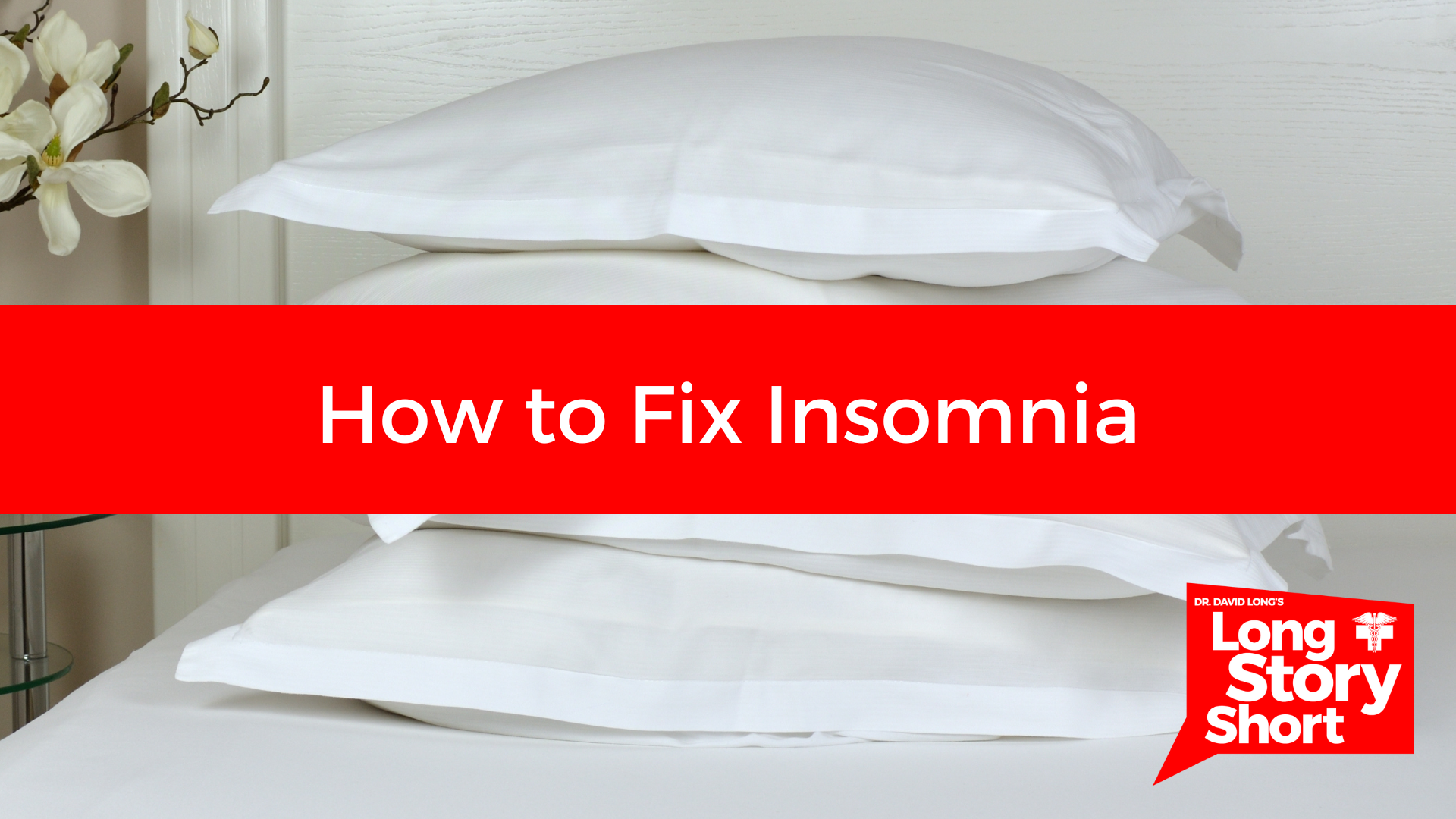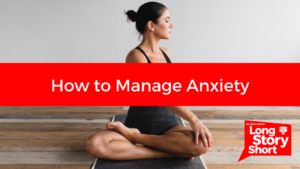How to Fix Insomnia Summary
• Insomnia is a sleep disorder that can be caused by various underlying conditions, including stress, anxiety, medication side effects, and hormone imbalance.
• There are several ways to treat insomnia without medication, such as creating a conducive sleep environment and avoiding things that make it worse (e.g. caffeine).
• If medicinal assistance is needed, melatonin and diphenhydramine (Benadryl) are two possible options. It is important to rotate between different methods so that the brain does not become too used to any one thing.
• Counting sheep can actually help induce sleep because it quiets the emotional side of the brain while minimally stimulating the mathematical reasoning side.
• Acceptance may also help some people fall asleep by getting them into a peace with their current situation
Full Text
Most of us have had that miserable experience where we’re lying in the bed, looking at the ceiling and it is two in the morning and sleep feels very far away. We know that next day is coming. We know the responsibilities of the next day are waiting for us whether we sleep well or not and it’s miserable. I’m Dr. David Long. I’d like to take a few minutes today to talk to you about insomnia and how to fix it.
If we’re going to understand insomnia, we need to break it down into a few things. Number one is what is it exactly? Well, insomnia doesn’t mean just not sleeping. Perhaps you’re sleeping, but it’s not very effective sleep. You sleep all night, but you wake up feeling very tired. Maybe you have trouble falling asleep, maybe you fall asleep just fine, but you wake up multiple times during the night. As it turns out, if we have stressors and anxiety that our brain is trying to deal with, it still tries to deal with those stressors while we’re asleep, and that can cause us to have really poor efficiency of sleep or multiple nighttime awakenings. Or there are those, these are commonly depressed patients who go to sleep fine, they stay asleep, fine, but they wake up at three or four in the morning and that’s it. They can’t go back to sleep. So all of those things could be considered insomnia.
What causes insomnia? Well, as it turns out, insomnia is always caused by something else. Insomnia is never the primary problem. There’s always something driving it and as it turns out, a lot of things can cause insomnia. It might be back pain, it might be headaches, it might be your anxiety, it might be a medication side effect. All of these things can lead to either decreased quality or decreased quantity of sleep. Another thing that can cause insomnia is hormone imbalance, and not just imbalance, where they’re way out of whack. But if our hormones aren’t optimized, our testosterone level isn’t what it used to be – that can cause insomnia. And while for the longest time the guy who goes to his doctor, and he gets his blood work done. And if this is the normal range and his testosterone’s here, what does his doctor say? Your normal testosterone’s normal. Move along. We don’t have to put up with that anymore. We can safely optimize testosterone levels and that can help insomnia tremendously for men and women.
And so if we really want to make the most gains in improving the quality or quantity of our sleep, we need to be sure to address the underlying conditions. What happens for a lot of patients is we get into a really bad cycle. We don’t sleep well, and then the next day we feel poorly. We feel tired, we feel groggy, maybe even angry because we didn’t sleep very well. Well, we compensate for that with either energy drinks, or taking some kind of a medicinal sleep aid at night. And while both of those things may work, they can perpetuate the problem. They can make the sleep the next night even worse or less productive sleep. So what we need to do is break that cycle because we can go from sleeping poorly to feeling poorly, to compensating poorly, to sleeping poorly, and we just don’t get anywhere. So one of the first things we need to do is back up and say, what is driving this and what can we do to fix it?
So first off, let’s talk about how to treat insomnia without medication. The first thing we want to do is be sure that our room is dark, that it’s cool that it’s absent of any loud noises or other distractions. We want to be careful not to exercise or eat large meals before bedtime. We’d also like to avoid stressful situations before bedtime. All of those things can disrupt the quality and the quantity of our sleep. A lot of times we have to be really careful about what we’re putting in our bodies during the day.
Alcohol. While it might help induce sleep, it disrupts our sleep patterns, making our sleep less restorative and then also further complicating our sleep for the next night and the next and the next, made worse every time we have alcohol near bedtime. One of the worst things that can happen for insomnia is for a very caring and kind physician to prescribe a very sedating, habit forming medication for a patient to take on a regular basis. We’re all familiar with sleeping medications like Lunesta and Ambien, even Xanax, which is an anxiety medicine, often used to help people sleep. And while those may have a short term reasonable role in insomnia, they will absolutely perpetuate the problem of insomnia if taken on a regular basis.
So I would really, really encourage you to first look at stress reduction. Look at creating an environment that’s good for sleep, avoiding things that make it worse, like caffeine, or exercise close to bedtime or these habit forming sleep aids that will make it worse in the long term. Then look at what you might need to do, as far as the medication to add on top of those strategies.
Let’s start with something as simple as melatonin. Melatonin is a great product. The problem is people take it like a sleeping medicine. The truth is melatonin’s not really a sleeping medication. You see, you and I live in this little flash in the pan of human history where we have artificial lighting. All of those people before us, our ancestors for many thousands of years didn’t have artificial lighting, but we still have the same brain that they have and our brains are geared toward the rising and setting of the sun. The sun’s up, you should be awake, the sun’s down, you should go to sleep. And we messed that up. Every time we have our phone or our television on or our lights on near bedtime, every photon of light that hits our old brain, that’s the same as it was thousands of years ago. Every photon of light tells our brain, “Hey, the sun’s up. You should be awake!” Melatonin helps us be more sensitive to the setting of the sun. It’s not supposed to put you to sleep. That has two very important implications. If we’re going to take melatonin, take it before sunset. It’s not going to knock you out and make you look like a stumbling drunk. It’s just going to be a nice, slow transition into sleep. And number two, you got to play along. If you’re going to take melatonin, telling your brain that the sun’s going down, you better minimize your light exposure or you will have defeated the whole purpose. Another thing about melatonin: don’t take the high doses. If you take high doses over a long period of time, your brain will stop making its own melatonin, and then you’ll be dependent upon this all natural substance. Nothing about all natural means safe, but I think it’s preferable over some of the other prescription sleep aids that are available.
Another common thing people use is: diphenhydramine, Benadryl, antihistamines to help you sleep. And while those aren’t particularly habit forming, and I would certainly say they’re safer than most other prescriptions. Sleeping medications: it’s not ideal to take anything over and over and over every night because our brain still has the capacity to get used to, immune to, that’s the wrong word, but immune to the medications such that it doesn’t work as well as it used to.
So if one of my patients has really bad insomnia and they’re making sure that their environment is conducive to sleep, they’re managing their stress, they’re exercising, they’re removing things from their diet, caffeinated drinks that’s going to make their sleep worse and they need some medication. I would say maybe find two or three things that are helpful to induce sleep for you and then rotate them. Let’s not get our brains too used to anything for sleep. And in that rotation of perhaps melatonin, some sleepy time tea, which I find to be very effective. Perhaps some Benadryl or ZZZquil is another trade name for it.
Another item that needs to be in the rotation is nothing. We need occasionally to have no medicinal assistance for us to sleep so that our brain can remember that you can go to sleep without any pharmaceutical help at all. We’ve all heard you should count sheep. Oh, just count sheep that’ll help you sleep. And while that sounds ridiculous, it’s been around a long time. So I think it’s worth considering it. There might be something to it. So how does that work? Why does that work? The reason that works is because there is absolutely nothing, emotional about it that evokes emotion in us because emotions can cause us a little bit of stress, which is going to interrupt our sleep. But counting sheep is really, really boring and really boring, is really good to help induce sleep. It takes our brain and quiets the emotional side and then kind of minimally stimulates kind of the mathematical reasoning side of our brain and what we find is after a while, you go to sleep! So I’m all for it, you should definitely try that too.
One group of patients that I love taking care of that really, really struggle with insomnia are those who are in recovery from drugs and alcoholism. Now this is the person who who cleaned up, maybe they went to treatment a month, three months, and they’re sober. They’re going to meetings, they’ve helped to restore the relationships. They’re working steps, they’re getting in touch with their higher power. They’ve gotten physically more healthy. Maybe they got a job, they’re taking care of their kids, they’re doing everything right and they can’t sleep a wink. It’s really frustrating for that patient because they look at it thinking, what else could I do? I don’t want to take medications. That’s what got me in a problem to begin with, but I can’t sleep.
Well, what I find over and over with this particular group of patients is that there are those who lay there staring at the ceiling and frustration that they can’t sleep and that perpetuates their insomnia and there are those that borrow those spiritual truths of recovery having to do with acceptance, and they apply them not only just to staying sober but to insomnia. What does that look like? Here’s what I mean by that. Maybe that person in recovery is laying there in bed staring at the ceiling at two in the morning knowing that their day and the responsibilities that come with it are awaiting them in a few hours whether they sleep or not, and sometimes they get to a point where they’ll say, I’m not sleeping well and that’s okay. There’s nothing I can do about that right now. I’m going to be really sleepy tomorrow. That’s okay. I can handle that. A lot of people struggle with insomnia, I may not even sleep the next night. That’s okay. I’ll deal with that when it comes. What happens with these patients? They go to sleep, they get into acceptance, they get a peace about it, they get a peace that comes with the understanding that while we may not approve of our circumstances in that moment, we can’t fix it. And after time, sometimes it works really well. Sometimes it doesn’t work so well, but through time their brain calms, and sleep comes to them much more readily.
And I would submit to you that if it works for that particular group of patients, it can work for you and I. If you found any of this helpful but would like some more information on the topic of insomnia, we made a downloadable content available to you on the website. So read it, take a look at it, share it. If there’s anything else we can help you with, feel free to give us a call.





 and then
and then